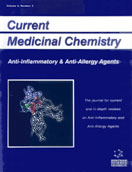Abstract
The immunoregulatory cytokine IL-10 plays a key role in normal and pathological immune responses due to its pleiotropic action on cells of the innate and specific immune system, influencing their differentiation, proliferation and activity. During the immune response an appropriate balance between pro- and anti-inflammatory cytokines, as well as the induction and maintenance of peripheral tolerance are critical. IL-10, mainly produced by antigen presenting and T helper type 2 cells, is engaged in these processes predominantly displaying anti-inflammatory and immunosuppressive properties, but it exerts stimulatory effects as well. The review focuses on the biological activities of IL-10 on cells of myeloid and lymphoid origin and summarizes the current knowledge regarding molecular mechanisms involved in the regulation of IL-10 expression. The pathophysiological role of IL-10 in inflammation and autoimmunity (sepsis, brain-induced immunosuppression, inflammatory bowel disease, psoriasis, rheumatoid arthritis, systemic lupus erythematosis), as well as in allergy and its impact in therapeutic strategies are discussed.
Keywords: Interleukin, pathophysiological, rheumatoid
 6
6

